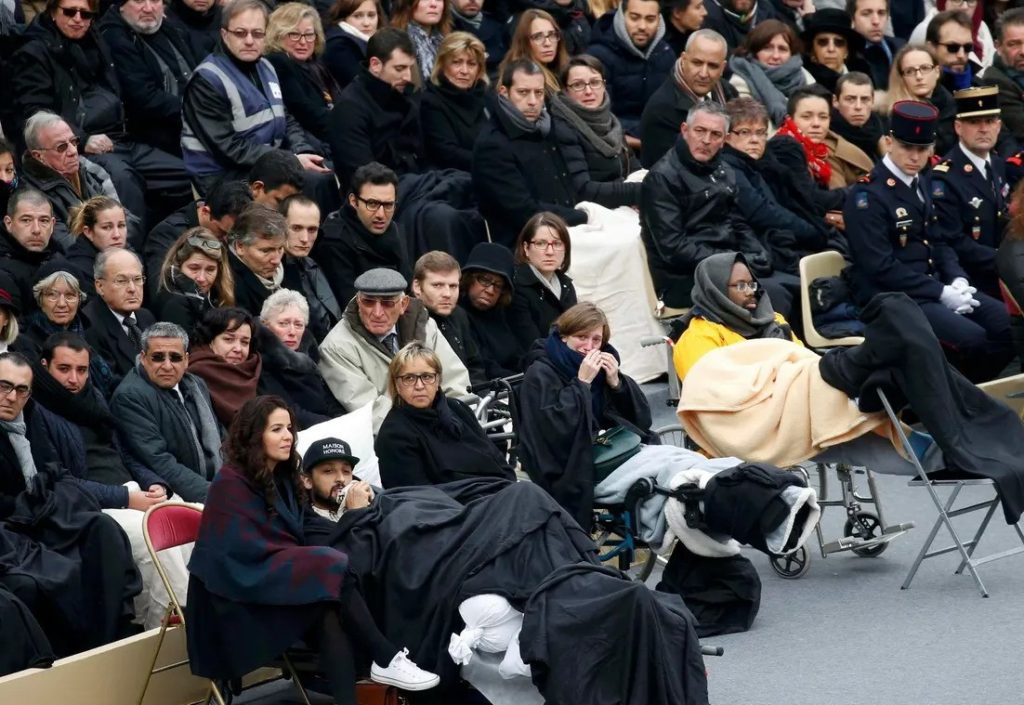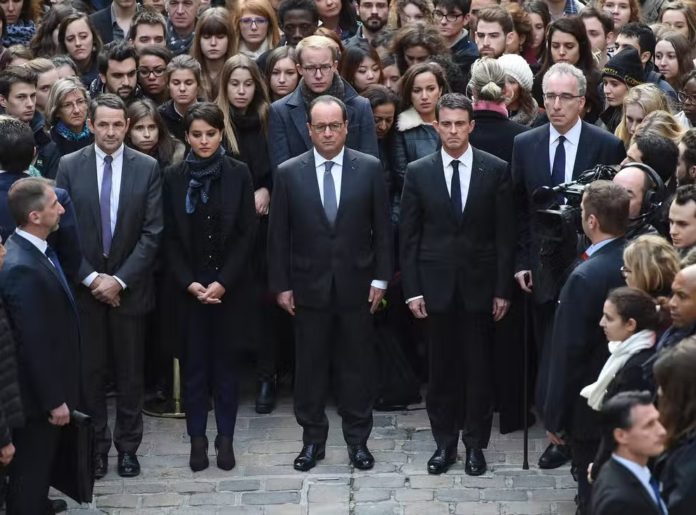President Barack Obama vowed on November 22 that the United States and its allies would not relent in fight to combat Daesh extremists and would hunt down their leaders and cut off the group’s financing. “Destroying (Daesh) is not only a realistic goal, we are going to get it done…We will destroy them. We will take back land they are currently in, take out their financing, hunt down leadership, dismantle their networks, supply lines and we will destroy them.” he told a news conference in Malaysia. The rhetoric resembles that by George W Bush in the wake of 9/11.
UN Secretary-General Ban Ki-moon urged Russia and the United States to cooperate in rooting out terrorism and said he would unveil a comprehensive plan to fight extremism and violence early 2016. Moreover, Barack Obama and Russian Prime Minister Dmitry Medvedev have separately called on all countries to coordinate and thwart Islamic State after its recent devastating attack on a Russian plane and on multiple targets in Paris.
Prime Minister Nawaz Sharif visited the French Embassy in Islamabad on November 17 to extended condolences for the lives lost during the Paris attacks, French Ambassador to Pakistan HE Martine Dorance said that the French people and government had a lot to learn from the Pakistani nation and government’s resilience [against terrorism]. Nawaz Sharif offered to assist the French government in this hour of need and share Pakistan’s expertise on counter-terrorism efforts. This is an appalling incident and Pakistan is one of the biggest victims of terrorism. Pakistan shares the pain and grief of the French people and dilemmas of the French government.
There is necessity and urgency for reappraisal of international counter terrorism effort since 9/11. As of now, the international effort to overpower terror is showing clear signs of fatigue, whereas terrorism may itself be only at the formative stages. The Islamic State claimed responsibility for the Paris attacks, calling it a “blessed foray” in response to France’s involvement in the “Crusade Campaign”. The Paris terror attacks on November 13 is one of those exceptional events which are poised to have a deep and lasting impact on international counter terrorism effort—it is necessary to monitor and ensure that such effort is not headed in the wrong direction.
The Paris carnage came just one day after Daesh had executed another attack in Beirut, leaving at least 47 killed and 200 wounded. The Beirut attack focused on areas with high concentration of Hezbollah members; this Iran supported entity aids the incumbent Syrian regime militarily and is a staunch opponent of Daesh. Within a week there was a hostage focused attack by Al-Qaeda in Mali, killing 27. Earlier on October 10, an attack was carried out on Ankara’s trains where 96 were killed and hundreds were wounded. This reflects Daesh and Al-Qaeda’s ability to organize well-coordinated attacks in different geographic locations; and inability of victim states to anticipate and thwart such attacks.
Unfortunately, the sequence of counter terrorism steps after the Paris attacks is strikingly similar to post 9/11 actions with a variation that this time it may be Europe that is poised to provide and sustain military boots on ground. At a press conference in Turkey after the G20 meeting, President Obama explicitly ruled out putting US boots on the ground to destroy Daesh. “We have the right strategy,” he declared, “and we’re going to see it through.” This confusion over US strategy, jockeying between containment and annihilation via rollback, is a reflection of American strategy’s inherent contradictions. These policy level paradoxes were evident before the Paris attacks; and there is no sign that these would be resolved.
Obama, who campaigned as the antiwar candidate in 2008, and promised to extricate the United States from intractable ground wars in Iraq and Afghanistan, could not resist the temptation of getting sucked into a third war — against Daesh. Extension in the stay of residual troops in Afghanistan indicates that though America no longer likes overseas wars, these wars are in no mood to let America disengage. The missing element in the international counter terrorism strategy continues to be lack of political will for acknowledging the underlying causes and generating a wholesome effort to address them through non-military means as well.

The Obama administration has so far pursued a variant of the Nixon Doctrine, which had sought to facilitate American geostrategic cutback while preserving American interests in vital regions. Central to Obama strategy is nurturing of effective allies—in and around conflict zones— who could assume greater responsibility for regional security as the United States disengages. Through its efforts to raise national armies in Iraq and Afghanistan for this purpose, it attempted to transfers security responsibilities to local semi-skilled and poorly motivated forces. And now a chance has propped up that could facilitate America to outsource the entire Daesh dilemma to Europe-cum-Middle Eastern conglomerate while maintaining just notional leadership and leading from the back. However, this neo-Nixon Doctrine may further make the matters troublesome for America. Moreover, it will be interesting to see how and where do China and Russia fit into this mosaic.
Political rhetoric, resolution in the UNSC, cobbling together of an alliance of the willing, ongoing rounds of bombing to eliminate the IS all echo back to 2001. Apparently another long war is in the making and the Middle East is certainly in for a long haul. Recent confessions and admissions by Tony Blair and Obama indicate that though there is increasing awareness of the blunders made while countering terror since 9/11 there are no indications of a long due bold course correction. The French president called the attack “an act of war” and promised to face the IS relentlessly. Prime Minister Manuel Valls said on TV that they will hit back the enemy until it is destroyed. This represents a pretty high level of escalation. Earlier, soon after 9/11 President Chirac had envisioned to nuke the terrorists!
France is likely to become more vulnerable on the domestic front as it ups the ante in the Middle East, blowback effects cannot be wished away. However, immediate sufferers would be potential Syrian refugees who had so far been acceptable to Europe—though grudgingly; and hapless Muslim countries of the Middle East whose public would face death and destruction from aerial bombing, without any system of prior air raid warning for the innocent non-combatants. Some countries could go through forced regime changes. And when the things are thoroughly messes up, the predators would abandon proclaiming victory, leaving behind resource-less puppet native regimes to deal with the debris of the conflict for decades to come.
Results of international counter terrorism effort have so far been akin to lawn moving, whereby availability of willing recruits has outnumbered the killed terrorists and or political militants. Carrying out frequent trans-country attacks all around the globe with persistence, lethality and impunity is an expensive enterprise involving heavy finances and precise logistical intricacies. Despite a whole range of international and state level legal tools to curb facilitation of terrorist entities, no major militant outfit is short of either finances or logistics.
Political violence or terrorism has been shifting venues in the face of pressures generated by application of military instrument in countering terrorist entities. Quick ability of these outfits to morph from one politico-military brand to another indicates their better understanding of opponents alongside ability to adapt, improvise and innovate. Apparently little intellectual work has gone into devising matching ways and means by those responsible to counter extremist violence at the international level.




